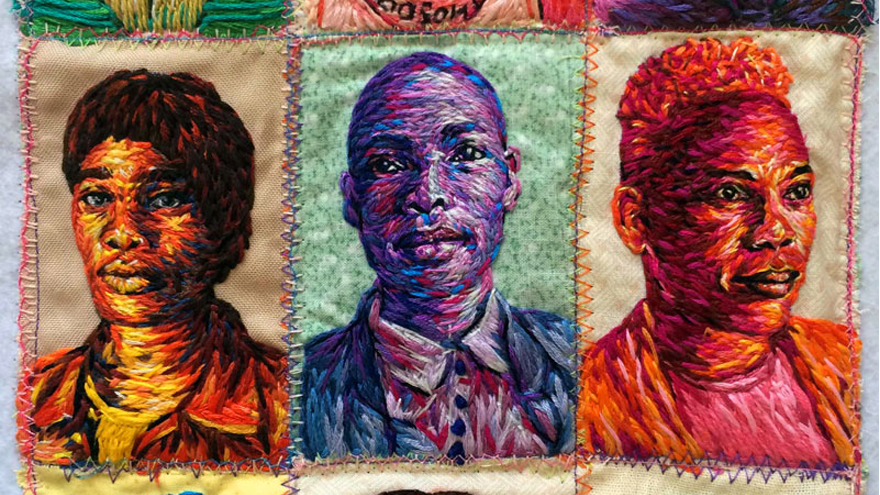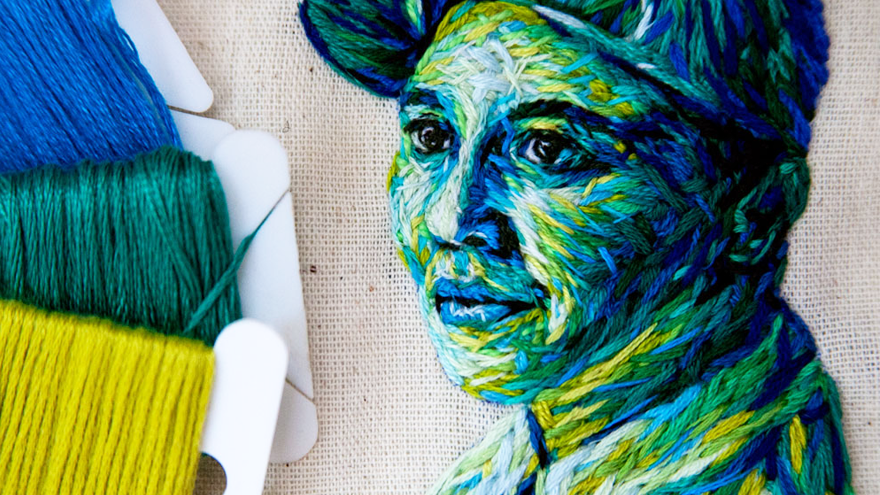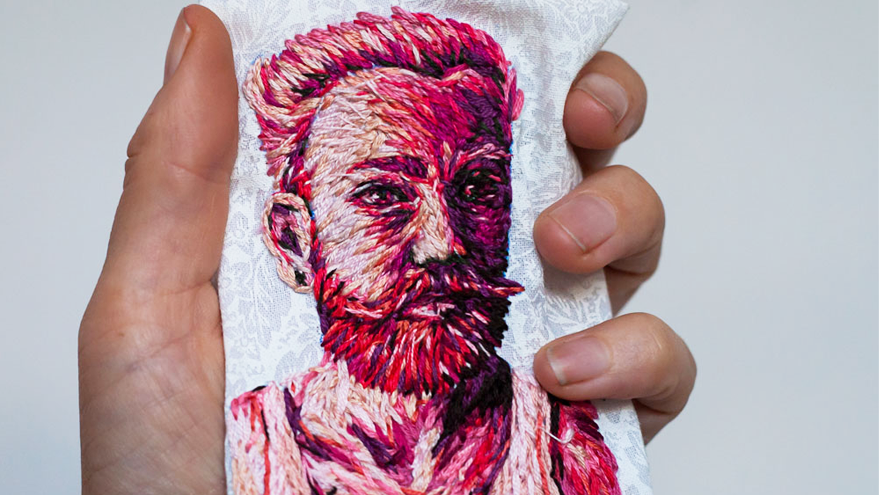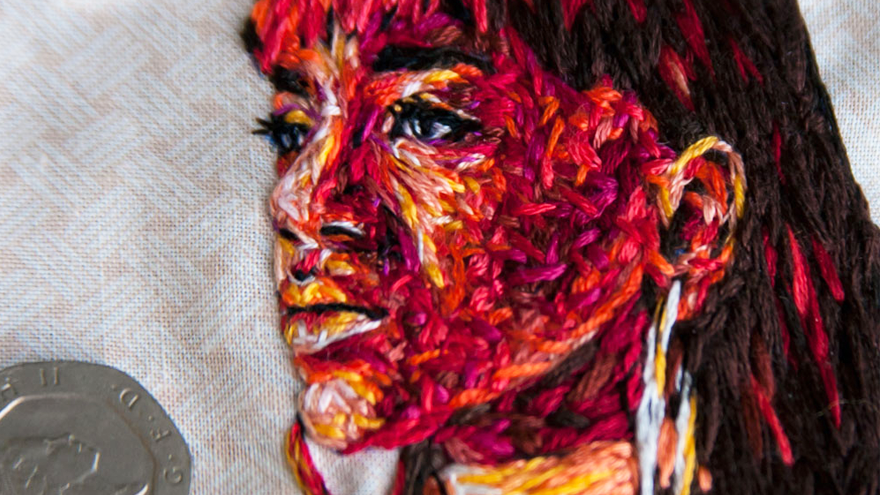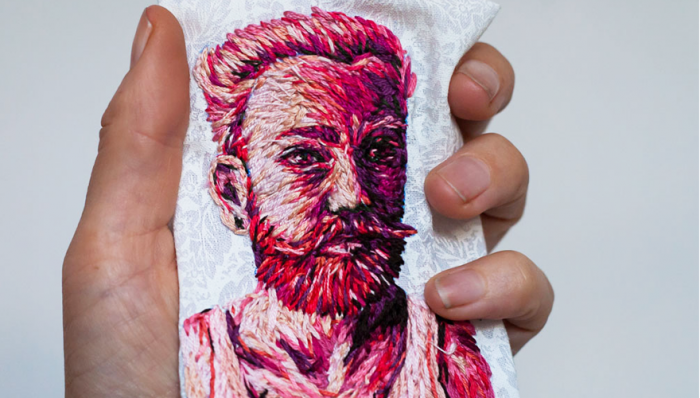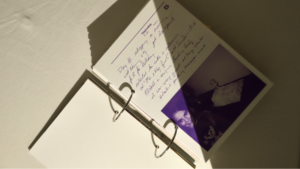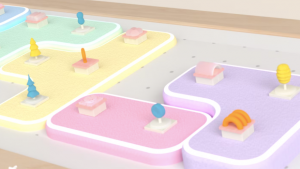For the new edition of Queer Africa, a book that brings together intimate stories of love, humour and tragedy from the LGBT communities across the continent, Capetonian artist Danielle Clough has created a series of tiny tactile portraits that will feature on the cover.
We asked the former Emerging Creative about her craft and how she became involved with the award-winning publication of Modjaji Books.
“I have been working with Modjaji Books for a few years as a freelance designer, designing layouts and book covers. I made my first book cover when I had just finished my studies and my grandmother’s first book of poems needed a cover (she was first published at the age of 77 after spending most of her life as a scientist – testament that you can live multiple lives).
The publisher for GALA and Modjaji contacted me and said that she wanted to use my embroidery for a cover. When she proposed that I do the Queer Africa II artwork, I felt it was a perfect fit with my values and medium,” said Clough.
Clough started this embroidery portraiture collection by photographing two of her friends. The rest of the faces, however, are strangers that she approached at random on the street.
“Two people are people that I know and knew that they would be proud to be part of the project. I approached three others completely randomly. It was important that, for the most part, I didn't know the subjects.
The most rewarding part of the process was finding and connecting with the people whose values aligned with the book, but that I didn't initially know. [Because of that] I connected to more strangers. Taking the portraits proved to be quite an intimate and magical experience,” she added.
Describing the methods that were used to embroider the subjects’ faces from photographs, Clough said, ”I shoot the subject and create black and white photographs as my reference. This gives me space to explore colour without a predetermined direction. From there I map it out onto fabric and simply colour it in with thread.”
On reflecting on her own ability to adapt and the importance for an artist to grow naturally, Clough said, “I'm always jumping between mediums. I'm not sure if it’s because I'm easily bored or scared of commitment. It’s been fun to see how, at the end of the day, nothing that you do really goes to waste and everything informs each other.
Embroidery started as a hobby and it has recently taken over all of my other disciplines. The last few years have shown me that the best way to nurture your 'craft' is to let it grow organically by listening to yourself, being open to change and working hard. You might be surprised at what you end up doing.”
Queer Africa II will launch in February 2017.
The Emerging Creatives Programme provides support, education and mentoring for South Africa's future designers.

